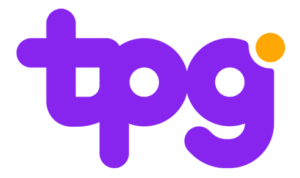With 5G now widely available across Australia, there’s one hot debate that’s already dominating the telco world. Will the next generation in mobile network technology replace the NBN as Australia’s go-to broadband connection?
It’s full steam ahead for 5G in Australia, with the next-gen mobile technology able to reach speeds of well over one gigabit (that’s 1000Mbps!). In comparison, the NBN has been met with controversy in the past — despite offering top speeds of up to one gigabit for several years and now with up to two gigabit speeds on offer. With 5G home internet plans now available from a variety of the major telco providers, could this new mobile network really be better, faster, and more reliable than the NBN?
On this page:
What is 5G internet?
5G technology uses mobile networks to connect your home to the internet — these are the same networks that deliver data to your smartphone when you’re away from WiFi. There are two types of 5G internet available in Australia: 5G mobile broadband, which is portable and tends to come with data caps, and 5G home wireless broadband, which is designed to replace your home’s wired internet connection.
If you’re looking for an NBN alternative, 5G home wireless is the best fit — these plans usually include unlimited data, and are good for connecting multiple devices in your household. You can connect to 5G home wireless through a plug-in modem, so set-up is generally fast and simple if you’re in an area with 5G coverage.
For the purposes of this article, we’ll focus on 5G home wireless broadband plans, as these are a much more direct comparison to NBN in Australia. So when you see the term ‘5G home internet‘, we mean ‘5G home wireless broadband’.
Is 5G faster than NBN?
Internet data speed is measured in megabits per second (Mbps), and gigabits per second (Gbps). One gigabit is comprised of 1,000Mbps; in Australia, gigabit-speed internet is essentially the gold standard of broadband, although not available to everyone.
5G can potentially hit speeds of up to 20 Gbps, although real-world performance in Australia isn’t quite that fast. In controlled conditions, we’ve seen speeds of over 4Gbps in Sydney; however, if you’re using 5G at home, you can expect maximum speeds to sit between 300-600 Mbps. Aside from speed, 5G may also reduce ‘ping’ times, which could lead to a significantly improved experience for online gamers.
While 5G is faster than 4G, it’s still not as widely available as the 4G services operated by Telstra, Optus, and Vodafone. Around 99% of Australians can access some form of 4G coverage, but 5G isn’t yet as expansive.
In comparison, NBN Co offers a range of fast-speed NBN plans including NBN 500, NBN 750, NBN 1000 and NBN 2000 speed tiers, which offer maximum download speeds of up to 2,000Mbps, depending on the plan. Again, your real-world performance won’t be quite this fast: for example, the NBN 1000 plan may only reach between 700Mbps and 800Mbps during the busy 7pm-11pm evening period, depending on the provider.
These fast speeds also aren’t available to all NBN-ready homes. You’ll only be able to access these plans if your home is connected to the NBN through Fibre to the Premises or selected Hybrid Fibre Coaxial technology types. Otherwise, you may be limited to NBN 100 or even NBN 50, unless you’re eligible for the free FTTP connection upgrade.
Your ability to access both high-speed 5G and high-speed NBN will depend on your location. But currently, the download speeds offered on NBN 2000 outstrip what most people will experience with 5G home internet.
Superfast, Ultrafast and Hyperfast NBN plans
If you’re on a Fibre to the Premises or selected HFC NBN connection, you may be eligible for super-fast NBN 750 (or NBN 250), ultrafast NBN 1000 or hyperfast NBN 2000.
The following tables show a selection of unlimited Home Superfast (NBN 750) plans on Canstar Blue’s database listed in order of standard monthly cost, from lowest to highest. Use our comparison tool to see plans from a range of other providers. This is a selection of products with links to a referral partner.
The following tables show a selection of unlimited Home Ultrafast (NBN 1000) plans on Canstar Blue’s database listed in order of standard monthly cost, from lowest to highest. Use our comparison tool to see plans from a range of other providers. This is a selection of products with links to a referral partner.
The following tables show a selection of unlimited Home Hyperfast (NBN 2000) plans on Canstar Blue’s database listed in order of standard monthly cost, from lowest to highest. Use our comparison tool to see plans from a range of other providers. This is a selection of products with links to a referral partner.
5G home internet plans
Below, you’ll find a range of 5G home internet plans from providers including Telstra, Optus and Vodafone.
The following table shows selected published 5G home internet plans on Canstar Blue’s database, listed in order of cost, from the lowest to highest and then by data allowance, largest to smallest.
| Brand | Features | Max Data**/billing period | Advertised Cost^^/billing period | |
|---|---|---|---|---|
 |
5G Home Internet
min. cost $85 over one month |
1TB | $85 | Link to provider unavailable |
 |
Optus Plus Entertainer Superfast 5G
min. cost $567 over first month |
Unlimited | $99 | Link to provider unavailable |
| **^^View important information | ||||
The following table shows selected published 5G home internet plans on Canstar Blue’s database, listed in order of cost, from the lowest to highest and then by data allowance, largest to smallest.
| Brand | Features | Max Data**/billing period | Advertised Cost^^/billing period | |
|---|---|---|---|---|
 |
5G Home Broadband Plus
min. cost $59.99 over one month |
Unlimited | $59.99 | Link to provider unavailable |
 |
5G Home Broadband Plus plan
min. cost $59.99 over one month |
Unlimited | $59.99 | Link to provider unavailable |
 |
5G Home Broadband Premium
min. cost $64.99 over one month |
Unlimited | $64.99 | Link to provider unavailable |
 |
5G Home Internet Plus
min. cost $65 over one month |
Unlimited | $65 | Link to provider unavailable |
 |
5G Home Broadband Premium plan
min. cost $69.99 over one month |
Unlimited | $69.99 | Link to provider unavailable |
 |
5G Home Internet Premium
min. cost $70 over one month |
Unlimited | $70 | Link to provider unavailable |
 |
Optus Plus Everyday Fast 5G
min. cost $547 over first month |
Unlimited | $79 | Link to provider unavailable |
 |
SpinTel 5G Unlimited
min. cost $114 over one month |
Unlimited | $89 | Link to provider unavailable |
| **^^View important information | ||||
Is 5G cheaper than NBN?
If you’re considering 5G home internet, the good news is that it’s relatively affordable. As with NBN, many providers now price and sell 5G internet based on the maximum achievable download speeds, with telcos including Vodafone and Optus offering speed-capped plans at a cheaper price.
Plans with a maximum speed of 50Mbps tend to begin at around $60 per month, while speeds up to 100Mbps will set you back around $65 monthly. For unrestricted speeds, plans begin at about $85 per month.
In comparison, NBN 50 plans begin at around $70 per month at standard pricing, although new-customer discounts are often available. NBN 100 or NBN 500 plans are available from around $80 per month, and if you’re after something faster, NBN 750 is priced from around $90 monthly.
Keep in mind that these prices are a guide only, and costs will vary between providers.
Pros and cons of 5G
There’s plenty of advantages 5G has over NBN – namely its portability, ease of setup and competitive pricing. However, there’s still a few factors that the technology lacks, most notably coverage. Here’s a quick pros and cons list to help you compare.
| 5G internet pros | 5G internet cons |
|---|---|
|
|
Is 5G better than NBN?
Aside from speed comparisons, what ends up being better for home internet could entirely depend on which provider you’re with, and what technology they’re backing. However, there is no good reason why 5G and NBN cannot complement each other — like how 4G is used for mobile applications, and NBN services home internet needs today.
Telstra, Optus and Vodafone have not been coy about their support for 5G. But with NBN Co now offering offering faster speed tiers and rolling out connection upgrades, households don’t necessarily need 5G coverage to access blistering fast internet.
Ultimately, the best broadband type for you will be determined by what’s available at your address, how you actually use the internet, and how much you’re willing to pay each month. If you want the best of the best and aren’t concerned about budget, NBN 2000 is probably your first choice for speeds and reliability. But if your coverage is good and you’re happy with download speeds under 500Mbps, 5G home internet could be a cheaper, more flexible option.
5G still has the potential to revolutionise internet in Australia — but don’t count out NBN just yet.



Share this article